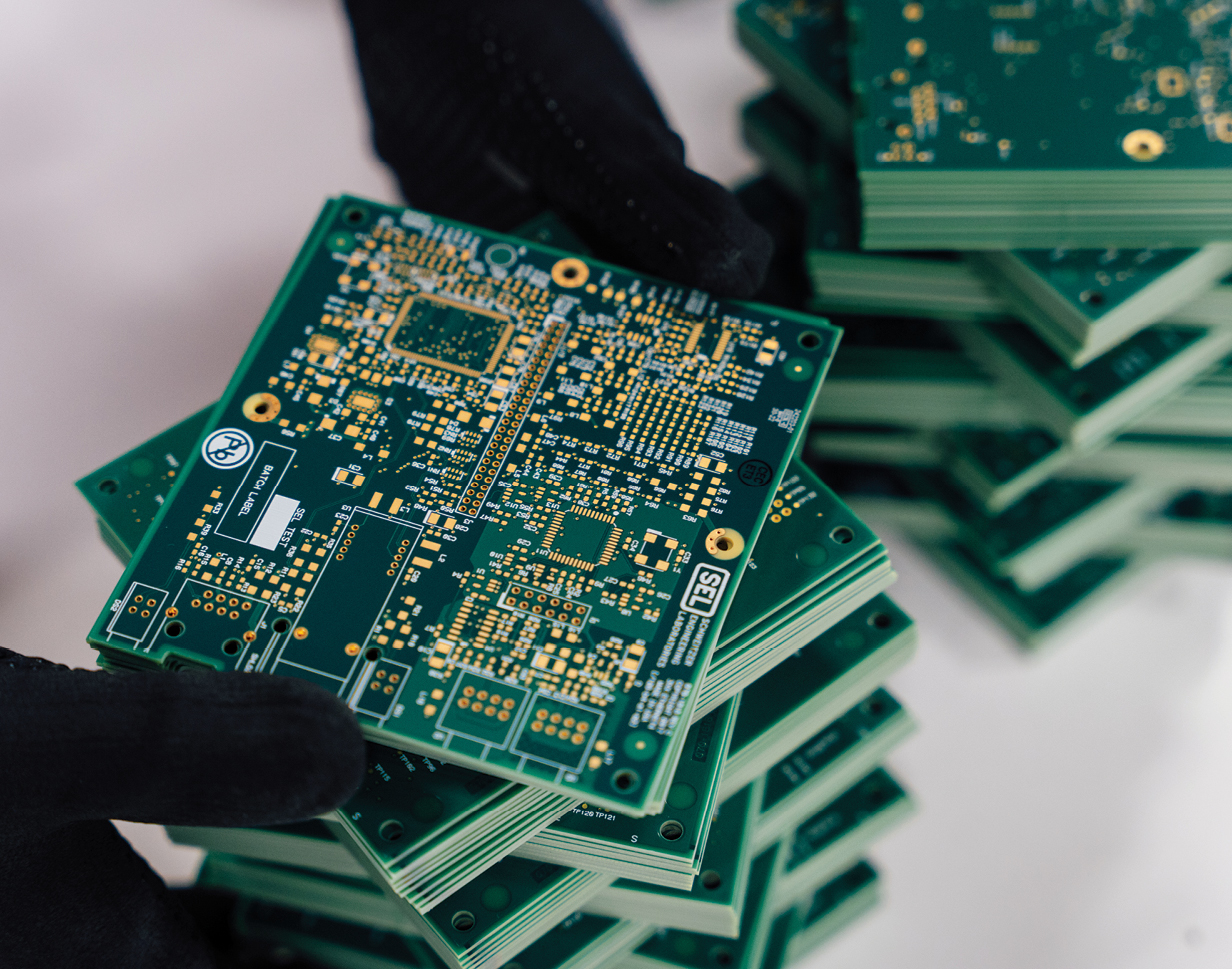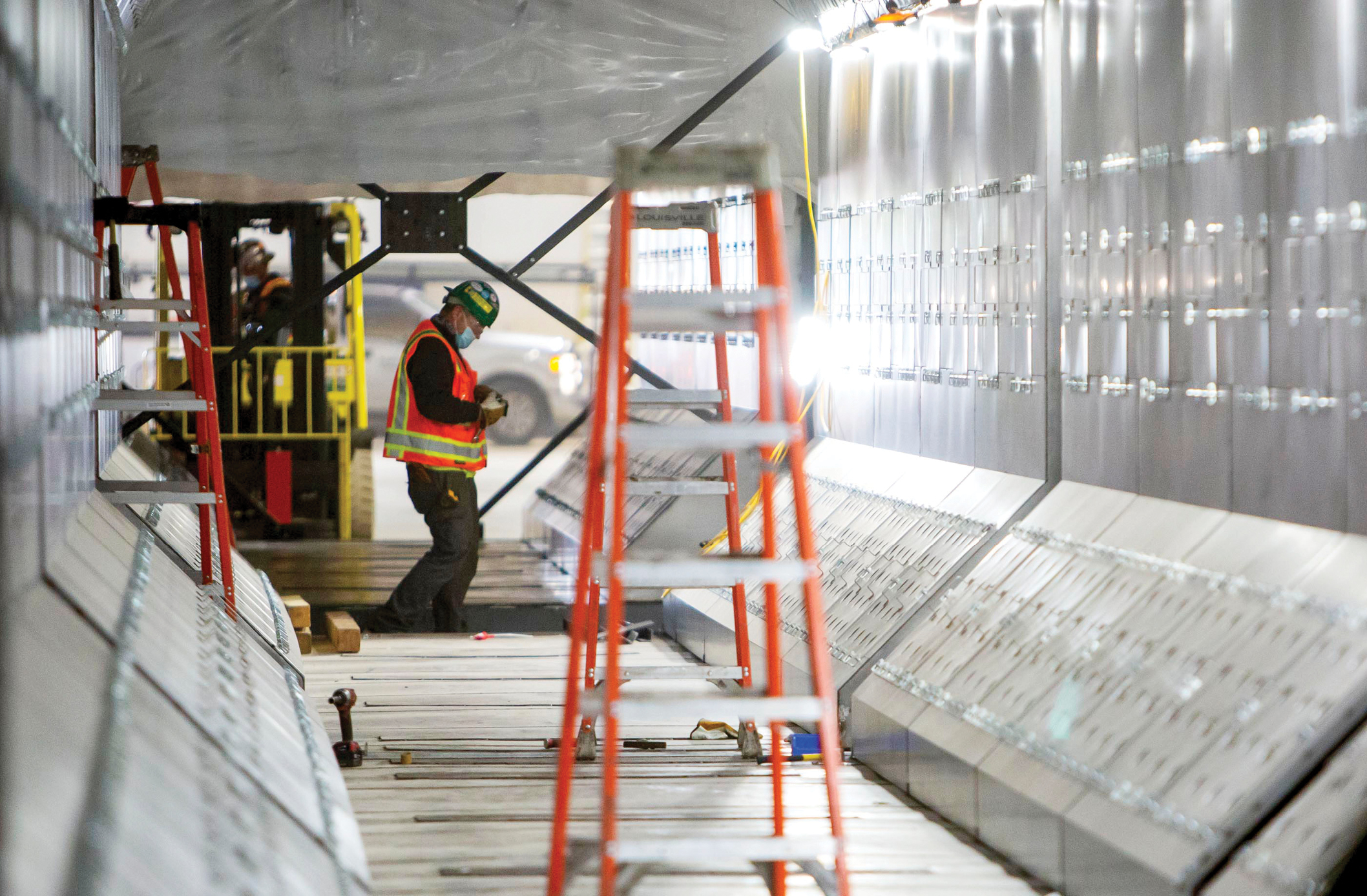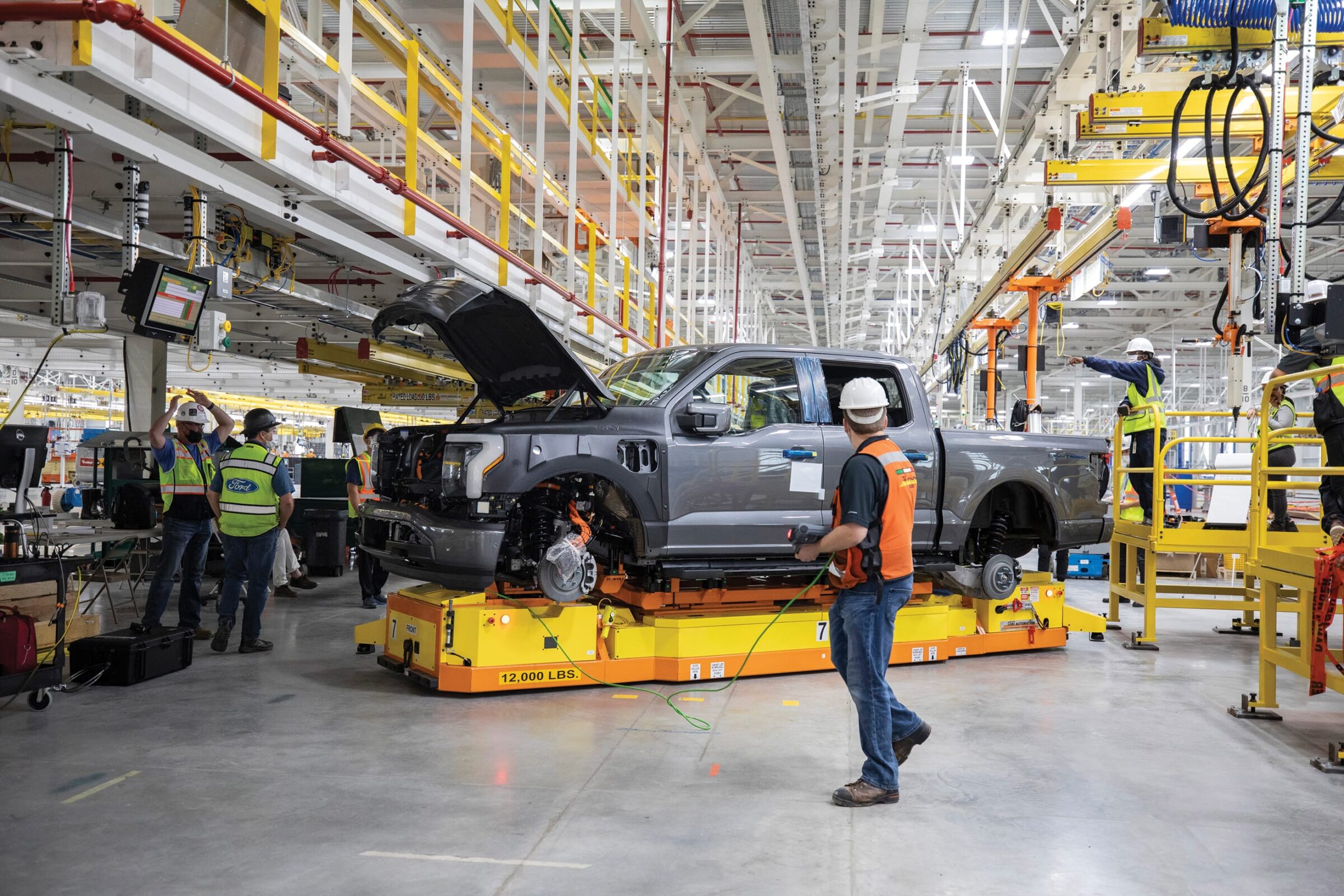How did Michigan become the world leader in the electrification of transportation? To understand that milestone, you have to start at the beginning. Over 100 years ago, Michigan put the world on wheels.
Today, Michigan is taking what it knows about making automobiles and applying it to the biggest industrial transformation since the dawn of the computer chip in 1958. Get ready to plug in to a thrill ride powered by clean energy-sourced electricity.
To better understand this extreme makeover, we turned to the person who’s in the best position to evaluate it: Quentin L. Messer, the chief executive & economic competitiveness officer of the Michigan Economic Development Corporation.
What were your state’s three biggest economic development wins of the past year?
MESSER: In many ways, 2022 was a landmark year for Team Michigan: Delivering significant wins for businesses of all sizes; creating innovative, concierge solutions for real-time talent needs; and supporting a strong sense of place in the communities across both peninsulas that define our character as Pure Michigan.
Our legislature’s bipartisan agreement in creating the Strategic Outreach Attraction Reserve (SOAR) in December 2021 was a game-changer that helped secure major global investments from Ford, General Motors, Gotion, Our Next Energy and Hemlock Semiconductor in its first 12 months after its enactment. The generated momentum shows no sign of slowing in 2023, with Ford announcing its $3.5 billion BlueOval Battery Park Michigan, creating 2,500 new jobs and a robust pipeline of qualified opportunities that will further our state’s reputation as a leader in the most technologically advanced manufacturing such as auto assembly, battery and semiconductor fabrication and advanced packaging sectors.
Building upon Governor Gretchen Whitmer and the Legislature’s creation of talent development programs like Futures for Frontliners and 60×30, getting MEDC’s Talent Action Team up and running was a significant win for Michigan residents and employers. The Talent Action Team’s goal is to provide concierge-level support to businesses looking for real-time talent solutions, and we already have two dedicated segments for the semiconductor and the EV/battery industries.
What makes Michigan special is the power of “and” — Upper and Lower peninsulas, agribusiness and mobility, Spartan and Wolverine. As such, MEDC has continued to facilitate exceptional community development opportunities for local communities across the state — who need funds to create affordable housing, to improve their downtowns, to advance water, wastewater and other infrastructure, and to enhance other placemaking initiatives — while supporting small business and entrepreneurial ecosystems that are critical to placemaking.
Across both of Michigan’s beautiful peninsulas, risk-taking entrepreneurs create businesses whose physical presence defines the character of many Michigan towns and supports the Little League teams and Rotary Clubs that have such a special place for generations. Small business support has become part of our overall strategic plan for the next few years, because we know how much these businesses mean to the local tax base, area residents and the business owners. No business is small to the person who is willing to put it all on the line to make a dream a successful, sustainable reality. We welcome those risk-takers and innovators — it’s in our DNA in Michigan.
It’s an exciting time in economic development for us, and we’re eager to keep our foot on the accelerator to welcome more investments, residents and job opportunities to our state. The welcome mat is open for all. This “Team Michigan” approach has drawn praise and investment from Michigan natives like Hemlock Semiconductor, Calumet Electronics and Ford, as well as innovation leaders like SK Siltron, KLA and LG Energy Solution.
What are your organization’s three biggest goals for the coming 12 months?
MESSER: One of the biggest objectives is to continue to secure transformational projects for Michigan. Last year, the state attracted more than $14 billion in EV and battery investments while developing programs to train and employ the next generation of talent in the EV/mobility and semiconductor sectors. We absolutely must build upon that momentum and extend it to other industries — clean tech life sciences, and insurance/fintech among them — to expand our portfolio in Michigan.
Second, we are aggressively expanding our efforts in preparing investment-ready sites across the state to attract innovative investment opportunities that bring jobs and new supply chain creation opportunities in high-tech advanced manufacturing sectors such as semiconductors, battery manufacturing and recycling, and clean energy technologies. Since 2021, Michigan has more than doubled its large manufacturing site acreage and as of early 2023, has more than 3,500 acres available. While continuing to refine our conception and delivery of pad-ready sites, Team Michigan is working to identify additional strategic sites in regions across the state, offering the best of both talent resources and community assets to companies who choose to call Michigan home.

Calumet Electronics
Photo courtesy of MEDC
Third, we are taking a fresh look at promoting our services and programs for small businesses. Every iconic Michigan business started as a small business. We are proud of this legacy, and we want these risk-taking job creators to know we are sustaining them by providing support — whether in the form of finance, mentorship, training or networking — to small businesses who play a significant role in the identity of a community.
A great, recent example of that support is a new $10 million fund we established in March 2023 in partnership with Huntington Bank and Michigan Women Forward (MWF) — a group empowering women to be involved in philanthropy, governance and economic development. Joining other ecosystem-supporting programming, the MWF fund is a microbusiness loan program for women and all entrepreneurs of color across Michigan, and particularly those who don’t qualify for traditional loans through banks or other financial institutions.
The automotive industry continues to go through major changes, particularly as most automakers adopt large-scale plans to produce EVs. How is this trend impacting the economy of Michigan?
MESSER: Michigan is the state that put the world on wheels. Our creative, problem-solving expertise within the mobility sector is an important reason that U.S. and global companies retain significant research and development presences in our state. As the transition in propulsion systems continues, we are pleased that Michigan remains the preeminent address for producing EVs, creating batteries, designing the future of mobility, and creating the infrastructure necessity to ensure that customer adaption occurs.
A recent report from the Environmental Defense Fund also noted that more than $120 billion of investments in American EV manufacturing has been announced in the last eight years, creating 143,000 good-paying jobs nationwide. Michigan alone has secured $16.6 billion of that total — roughly 14% of the market — creating 6,300 jobs in the state building batteries and EVs. We’ve also been identified by CNBC as one of three states that will “dominate” EV battery manufacturing by 2030, and the City of Detroit has been named by Newsweek as the “next Silicon Valley” for mobility innovation.

Renovations and new construction continue at the General Motors Detroit-Hamtramck Assembly Plant.
Photo courtesy of General Motors
Companies across the entire mobility supply and value chains are calling Michigan home due to a highly developed ecosystem that includes the nation’s first Chief Mobility Officer, the Office of Future Mobility and Electrification, and innovative landing spaces such as Michigan Central and the American Center for Mobility. There is still plenty of work ahead, and the competition is fierce, yet I’m energized daily by the momentum we’ve built that is leaving no doubt Michigan will continue to lead the world in mobility solutions for generations to come.
How is the reshoring of the semiconductor production supply chain affecting Michigan?
MESSER: It goes without saying a significant portion of our economy — notably, the automotive industry — depends on the availability of mature node chips and the reshoring of the semiconductor production supply chain is a wonderful opportunity Team Michigan will not miss. Relatedly, as autonomous vehicle (AV) development continues, advanced packaging and other semiconductor innovation will be required, and Michigan’s proximity to global leaders in AV is a location advantage matched by few other locations. In addition to the mature node chips, chips availability impacts every part of the modern world economy — much of which is represented by the brands with significant employment and physical presences in Michigan.
Michigan is already a leader in semiconductor manufacturing in many ways, including innovative workforce partnerships with the SEMI Foundation. Further, we’re centering programming on ensuring the talent pipeline exists for these jobs, through the Semiconductor Career and Apprenticeship Network Program that will provide grant funding for workers in the microelectronics industry by creating pathways and opportunities for a much-needed workforce. It’s been a great, cohesive approach across the board to ensure we are competitive and leaders in the semiconductor industry.
Across Michigan, significant applied and directly applicable research and development is conducted, and we are home to some of the best supply chain programs in America. As part of the existing ecosystem, we are proud to be home to companies like Hemlock Semiconductor — who produces the polysilicon for one-third of the world’s chips — as well as KLA, Wacker, SK Siltron and Calumet Electronics. Thanks to this presence and the robust university and research ecosystem across the state combined with the presence of the mobility and medical device sectors, two of the largest customer bases for the industry, we have a great deal of potential to expand our growing semiconductor ecosystem operations or welcome others while critical federal funding is available.
What are you doing to create vibrant communities and ensure site readiness for businesses and people?
MESSER: We know that businesses need high-quality talent and that talent — especially young talent — wants to live and work in attractive, vibrant communities, which is why we have a plethora of programs and services to create vibrant communities and ensure that placemaking happens.
Michigan has many diverse and beautiful communities, and each has unique qualities that make it great. But what is important or necessary in Detroit might not be the same in Marquette in the Upper Peninsula, for example. Still, both communities are contributors to our state’s economy. That’s why we take a regionally relevant approach where Team MEDC members live, work and play in every area of the state so they can understand the differentiated needs and desires of place across both peninsulas. My colleagues and I work together every day responding to community wants and educating about how to access state support. With programming like Redevelopment Ready Communities that empower locals to craft a community-specific vision of its own development, we are more intentional that our economic development and prosperity efforts reach every person in every community.
MEDC works with many of our state’s communities to support placemaking efforts, promote matchmaking opportunities between suppliers in the state, and create sustainable partnerships across all community assets — residents, employers, educational institutions and more. We have seen first-hand that investments in these programs and services offer a strong return on investment, especially among young people who we know want exciting and unique things to do, jobs with strong paychecks and purpose, and a strong overall sense of community.
What are some emerging industries in Michigan that are growing rapidly?
MESSER: Semiconductors, life sciences, clean energy, tech and hydrogen are key industries Team Michigan are laser-focused on growing while maintaining our traditional strengths in the automotive and mobility industries, the agribusiness sector and advanced manufacturing.
Michigan is ready and eager for the reshoring of semiconductor production back to the United States, of course, but post-pandemic, word has been getting out about our life sciences industry, too, especially in West Michigan where our Arsenal of Innovation thrives. This side of our state is home to Pfizer’s largest manufacturing site in the nation, in Portage, as well as Grand Rapids’ “Medical Mile” full of institutions researching and treating cancer, heart disease, diabetes and more.
In fact, at the end of 2022, Pfizer announced an investment of $750 million and the addition of hundreds of jobs to their facility in West Michigan, and BAMF Health — a medical technology company operating in radioactive drugs and therapy for cancer treatment — opened their global headquarters in Grand Rapids.
Michigan is also proud to be a leading member of the Midwestern Hydrogen Coalition — a group of seven Midwestern states looking to accelerate and improve clean hydrogen production, processing and use throughout the region. Federal dollars are at stake to create “H2 Hubs,” and we fully intend on taking advantage of these opportunities. Nel Hydrogen’s $400-million, 500-job electrolyzer plant announcement at SelectUSA is a case in point. We are actively working with industry partners to best position Michigan companies to be part of successful hubs, with the focus on transportation — freight, buses, and others — as well as heavy industry like steel.
Do you have any metrics that show how well MEDC is marketing the state for economic development?
MESSER: In an October 2022 survey, site selectors ranked Michigan as having the strongest marketing effectiveness, in a four-way tie for first. Building on that reputation, in 2023, the MEDC launched a new, fully integrated business marketing campaign with bold imagery and headlines that share with pride the “Pure Opportunity” we have in the great state of Michigan, intentionally complementing our iconic Pure Michigan travel campaign. The Pure Opportunity campaign features a diverse cross-section of industries, businesses, talent and locations to help share the message that Michigan is a great place to start, move and grow a business.
More recently, in March 2023, we announced a Talent Attraction Campaign, an unprecedented recruitment effort in a public-private partnership with 15 major Michigan employers, public universities and community colleges. We also launched a program, Michigander EV Scholars — the largest in the nation of its kind — to promote careers and recruit talent to fill jobs in Michigan’s surging EV and transportation mobility sector. Telling the Michigan story in increasingly more creative ways to multiple audiences is one of MEDC’s central purposes.

